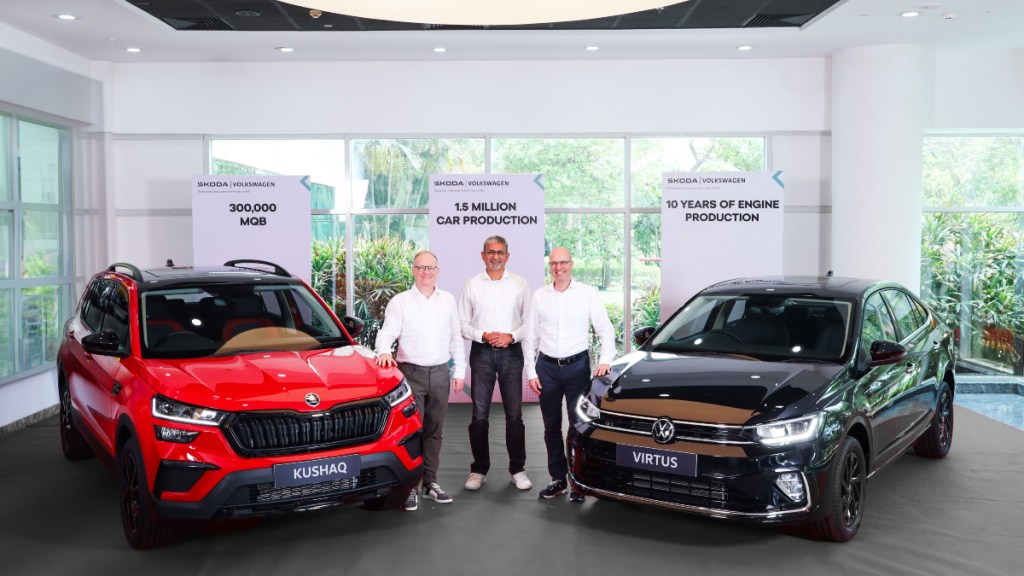Škoda Auto Volkswagen India Private Limited (SAVWIPL) has achieved a significant milestone at its state-of-the-art vehicle and engine manufacturing facility in Chakan near Pune. The German auto conglomerate has produced over 1.5 million vehicles at its Chakan Plant since it rolled out the first car— Skoda Fabia in 2009 from the facility
Over the course of time, this production facility has built several models including VW Vento and Polo, Škoda Fabia and Rapid along with new-gen models based on the MQB-A0-IN platform— VW Taigun and Virtus, Škoda Kushaq and Slavia.
Speaking on this momentous occasion, Piyush Arora, Managing Director & CEO,SAVWIPL, said, “The significant output of 1.5 million vehicles at our Chakan Plant, coupled with the production milestone of four successful MQB models and the 10-year journey of our Engine Shop stand testament to our dedication to India’s automotive industry and SAVWIPL’s significant contribution to the nation’s talent and workforce.”
Skoda Volkswagen India engine production
Moreover, the engine shop at the Chakan facility has produced more than 3.8 lakh units of engines for the Volkswagen Group. This achievement is further strengthened by SAVWIPL’s dedication to domestic sourcing, with the 1.0L TSI engines highly relying on components manufactured within India. While the 1.5-litre TSI engine is also produced in India some of its components are directly sourced from overseas.
Škoda Auto Volkswagen India also celebrated the 3 lakh unit production milestone for the popular INDIA 2.0 car range, which includes VW Taigun and Virtus, Škoda Kushaq and Slavia. These include the vehicles produced both at Chakan, Pune as well as Chhatrapati Sambhaji Nagar (formerly known as Aurangabad). The former has an annual production capacity of 180,000 units whereas the latter produced 6,00,000 units every year.
The current range of Volkswagen and Skoda cars also hold the distinction of being the safest made-in-India cars having achieved full five-star safety rating for both adult and child occupants by the Global NCAP. India also serves as a global production hub for both the car brands, exporting over 30% of the total production to overseas markets.
